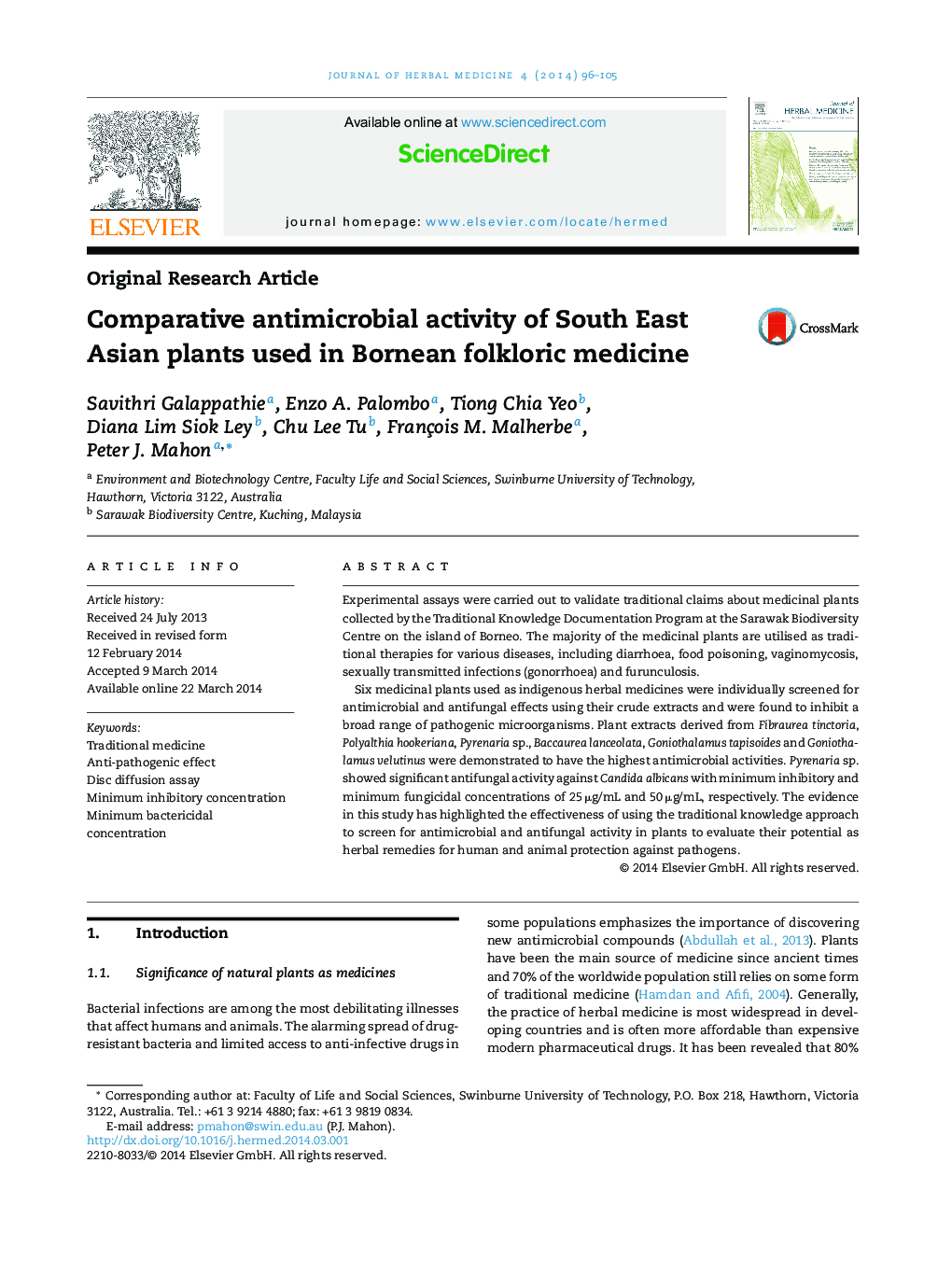| Article ID | Journal | Published Year | Pages | File Type |
|---|---|---|---|---|
| 2484075 | Journal of Herbal Medicine | 2014 | 10 Pages |
Experimental assays were carried out to validate traditional claims about medicinal plants collected by the Traditional Knowledge Documentation Program at the Sarawak Biodiversity Centre on the island of Borneo. The majority of the medicinal plants are utilised as traditional therapies for various diseases, including diarrhoea, food poisoning, vaginomycosis, sexually transmitted infections (gonorrhoea) and furunculosis.Six medicinal plants used as indigenous herbal medicines were individually screened for antimicrobial and antifungal effects using their crude extracts and were found to inhibit a broad range of pathogenic microorganisms. Plant extracts derived from Fibraurea tinctoria, Polyalthia hookeriana, Pyrenaria sp., Baccaurea lanceolata, Goniothalamus tapisoides and Goniothalamus velutinus were demonstrated to have the highest antimicrobial activities. Pyrenaria sp. showed significant antifungal activity against Candida albicans with minimum inhibitory and minimum fungicidal concentrations of 25 μg/mL and 50 μg/mL, respectively. The evidence in this study has highlighted the effectiveness of using the traditional knowledge approach to screen for antimicrobial and antifungal activity in plants to evaluate their potential as herbal remedies for human and animal protection against pathogens.
